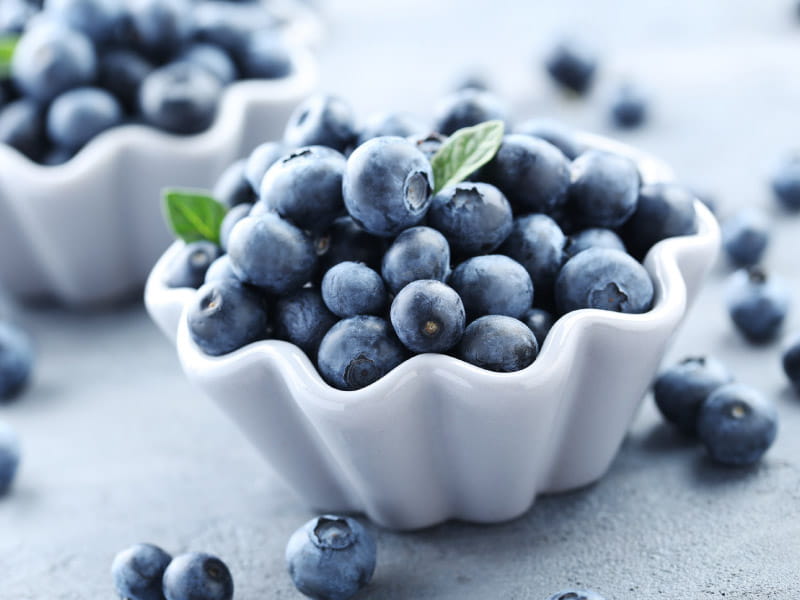Yes, horses can eat blueberries. Blueberries are safe for horses to consume in moderation.
Horses, like humans, have specific nutritional needs to maintain their overall health and well-being. While hay and grass are the primary sources of their diet, it’s not uncommon for horse owners to supplement their horses’ diet with fruits and vegetables.
Blueberries, known for their antioxidant properties, can provide some health benefits to horses as well. However, it’s crucial to introduce any new food gradually into a horse’s diet and monitor for any adverse reactions. This will ensure that the horse’s digestive system can handle the new addition without causing any harm. We will explore whether horses can eat blueberries and discuss the potential benefits and risks associated with feeding blueberries to horses.
**Are Blueberries Safe For Horses To Consume?**
Blueberries can be a safe and nutritious addition to a horse’s diet, but there are several factors to consider. These juicy berries are packed with essential vitamins and antioxidants that can benefit a horse’s overall health. However, moderation is key when it comes to introducing new foods.
It’s important to note that some horses may have sensitivities or allergies to certain fruits, so it’s advisable to introduce blueberries gradually. Additionally, blueberries should never replace a horse’s main diet of hay and grain. While blueberries provide several nutritional benefits, overfeeding can lead to digestive issues or an imbalance in their diet.
Monitoring your horse’s reaction to blueberries is crucial, and any signs of discomfort should be addressed with a veterinarian. In conclusion, blueberries can be a tasty and healthy treat for horses, but it’s crucial to consider your horse’s individual needs and consult with a professional if necessary.
**How To Safely Feed Blueberries To Horses**
Blueberries can be safely fed to horses as a treat or supplement to their regular diet. When offering blueberries to horses, it’s important to consider the recommended serving size and frequency. A small handful of blueberries once or twice a week should be sufficient for most horses.
It’s also recommended to wash the blueberries thoroughly before feeding them to remove any pesticides or contaminants. You can feed the blueberries whole or mash them up slightly to make them easier for the horse to eat. Blueberries are a nutritious source of vitamins and antioxidants, and incorporating them into a horse’s diet can provide additional health benefits.
However, it’s important to keep in mind that blueberries should only be given in moderation and not replace the horse’s regular feed. As always, consult with a veterinarian before making any major changes to your horse’s diet.
**Alternatives To Blueberries For Horses**
Blueberries are not the only fruit suitable for horses. Other fruits, such as apples and carrots, can be included in their diets. These alternative fruits offer similar benefits in terms of providing important vitamins and minerals. However, when introducing new foods to a horse’s diet, it’s important to consider their individual needs and preferences.
Some horses may have allergies or sensitivities to certain fruits, so it’s crucial to monitor their response. Additionally, it’s important to offer a balanced and varied diet to ensure that horses receive all the necessary nutrients. By incorporating a variety of fruits, horse owners can provide a range of flavors and textures to keep their horses interested in their food.
Overall, offering alternatives to blueberries can contribute to a healthy and well-rounded diet for horses.

Credit: www.heart.org
Conclusion
Blueberries are a delicious and nutritious fruit that many humans enjoy, but can horses eat them too? After delving into the topic, it is clear that while blueberries are safe for horses to consume in moderation, they should not be a significant part of their diet.
While blueberries contain important vitamins and antioxidants that can benefit horses, excessive consumption can lead to digestive issues such as diarrhea. As with any treat, it is important to remember moderation and to introduce new foods gradually to avoid upsetting a horse’s sensitive digestive system.
Ultimately, it is best to consult with a veterinarian or equine nutritionist before introducing blueberries or any other unfamiliar food into a horse’s diet. By doing so, horse owners can ensure their equine companions receive a balanced diet that meets their specific nutritional needs.
